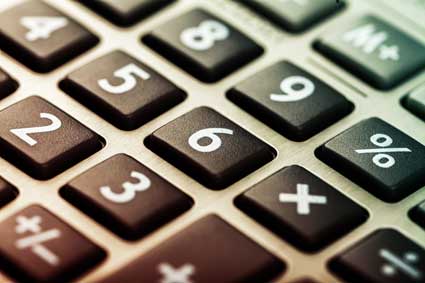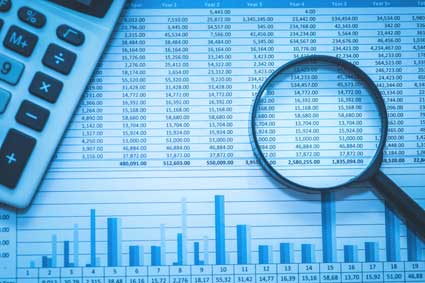Key Definitions
1. Credit score – This is a number used to determine the creditworthiness of a person. It is generated through the analysis of individual credit files.
2. Credit report – This is the information used to generate a credit score. It is sourced from credit bureaus.
3. Debt consolidation – This is a type of loan refinancing that involves taking out a single loan to pay off multiple loans.
4. Bankruptcy – This is the process through which a person can repay or eliminate debts under the protection of a court.
5. Trustee – This is an individual who holds authority, property or position of another person for the benefits of this person.
Introduction to Debt
Being trapped in the debt spiral is pretty frustrating, but it is not the end of life. In fact, according to a report by Federal Reserve, together, US residents owe more than $2 trillion in consumer debt which is slightly over $18,000 per family, and a 41% increase from 1998. Everyone appears to owe something, and most people are so deep into debts that it will take years for them to be debt free. It is estimated that one in every seven people is being pursued by a loan or debt collector.
Luckily, most people are gradually working towards being 100% debt free, and you can do it too. Regardless of how you got yourself into debt, it's possible to be debt free. Maybe you paid your school fees on student loan, maybe you purchased a fancy car on credit, maybe you made too many impulse purchases at the store using your credit card, whatever the cause of your debt, that's all in the past. Now it's time to move on and work on being debt free. Think about this, 76 percent of all Americans are debtors and you can be in this quartile too.
But how?
As it turn out, what you are doing to generate more income and your spending patterns have a big impact on whether you stay stuck or break the debt cycle. This articlediscusses mistakes that keep people stuck deep in debts.
1. Living in Denial
When some people find themselves in large consumer debt and they are unable to keep up with rent and other bills, their first reaction is to cease checking their mails, and as such, stop collecting and studying their bill and credit card reports.
Unfortunately, during the break from financial reality, your situation will have deteriorated to a point of total ugliness. Some of your accounts will have gone to collection agencies, you power will be about to be switched off, and more. Serious financial crisis will have arisen because you refused to face your financial reality and this will only keep you longer in the debt cycle.
Quick Hint:
Everybody will feel for you if your debt arose from factors beyond your control such as emergency treatment costs, but the reality is, "It's still your debt." Denial and seeing yourself as a victim will only make you too angry to focus on the important thing; repaying your debt. Breaking the debt cycle is not for the faint hearted; it requires hard work, and you will need to be all in."
2. Failing to Negotiate
It is shocking to see the large number of people who do not take initiative to sit with their creditors and negotiate the terms of their loan repayment. In fact, it's the very first thing you should do. Call the credit card company and request a lower interest rate on your loan. It's that simple, but most people never do it – and it can save you hundreds or even thousands of dollars.
Banker and lenders are used to payback plan negotiations and it's a key activity for anyone in the business of lending. Be wise, and offer a repayment schedule and amount that you can meet without putting too much pressure on your life. If the creditor declines your offer and it's genuinely the best you can offer without crashing your life, be upfront and tell them to take you to court. Most financial professional says that they will rarely do so. Instead, they will more likely just accept your offer.
Even if it's the IRS that you owe, show them that you are willing to pay off your debt and you are offering the much you can afford without killing yourself, and they will accept your offer. Once agreed, stick to the deal and make sure you don't miss re-payments.
3. Stopping to Take Risks
The worst regret people have during old age is that they feared taking risks – they played too safe. Take it or not, debt is a normal part of life. If you stop trying new things or being better because you're in debt, you will most likely have more regrets at end of your life than if you paid of your debt slowly or even never re-paid it at all.
70% of your attitude towards life is genes driven. But you have full control over the other 30%. Practice being optimistic and it will ripple all over your life. Accept the fact that you are in debt, you need to pay it, and then fill your mind with positive thoughts. Psychologists argue that your words are your thoughts, and your thoughts are the life you live. If you view yourself as able to pay your debts and move towards financial freedom, each day you will wake up with a fresh breath and energy, ready to fight towards your goals.
4. Adding too Much of the Bad Debt
It's vital to differentiate good and bad debts; good debts are incurred to support an investment (bring to mind student loans and mortgage); bad debts arise from borrowing funds for things that will only depreciate in value.
Credit card debts should be categorized under the ‘bad debt", because the moment you purchase an item on credit, for instance a phone, it's value decreases each day, but the credit card company will continue to charge you interest until you repay the debt in full.
Most people get stuck in credit card debts because they try to keep with the Jonesses. Harzog, the writer of the book titled "The Debt Escape Plan," "Posits that the tendency to keep up with Joneses has skyrocketed all thanks to social media." He tells, "These platforms have created virtual competition among users." He concludes by advising that if trying to keep up with the Joneses is keeping you in debt, it's really not worth the stress you will fill when the bills hit you and you can't pay them."
Bottom line; avoid the bad debts.
1. Living Beyond Your Means
It might be hard to accept, but can you afford to live in your current resident? Is the general cost of living in that state, region, or town driving you into debt? If yes, consider relocating to a more affordable region.
2. Trying to Get Out of Debt Alone
Most people try to pay off debts by themselves, only to feel unsuccessful when they struggle to realize their objectives. The good news, there are two resources you should consider using if you have sunk so deep into debts that there seem to be no way out; credit counselling and your credit card company hardship department.
Hardship department aims to support those people whose debt arose from serious illnesses and financial crises such as pro-longed unemployment. Most programs under this department provide waived fees, lower interest rates, and/or lower minimum re-payments. For example, if you debt has arisen from medical costs and you can comfortably pay a significant percentage of the debt up front, hit the hardship department and try to negotiate a lower rate.
Credit counselling can be as basic as cell phone counselling session where you speak and receive professional guidance from a financial expert.
3. Not Having a Practical Budget
Getting and remaining out of debts involves creating a realistic budget and of important, sticking with it. Your aim should be to make your ends meet on the necessities such as food, healthcare, housing, education and insurance, while still repaying your debt.
Start by reviewing your daily expenses and finding ways to save. Track your expenditures for a month and classify each expense as either a want or a need. This will provide you with a pragmatic idea of where your finances are going and help you to identify some possible areas of saving. Then, use the extra amount to finance your debts.
Although it is important to triple or quadruple your loan payments so as to get out of debt as faster as possible, make sure to allocate yourself enough money to take care of your basic needs. Paying off your loans and then borrowing to pay for groceries and gas is counterproductive.
But don't be caught up in paying only the minimum repayment each month; it will keep you stuck in the debt cycle for very long. For instance, assume you borrow $10,000, all from a credit card company that charges an annual interest percentage rate of 15 percent. Assume the minimum re-payment is pegged at interest + 1 percent of the balance.
Based on this information, your initial re-payment (during the first month) will be $225. If you make the mistake of paying only this amount each month, it will take you exactly 27.9 years – that is 335 months! – to fully pay your debt. In the same period, you will have paid slightly more than $11,979 in interest.
So, if you're budget allows you to pay off your debt in lump sum, this calculation shows that it's the smartest and cheapest way out.
It's also to slash away some cash into an emergency kitty well before repaying your loan. Otherwise, without an emergency kitty, when unexpected bill pops up, you will have to borrow (usually from the expensive credit card companies) to pay it off and eventually you will get caught up in the "pay, spend, pay" cycle.
A quick hint;
It's very easy to stay on budget with well-defined financial goals. You goals can vary widely and may include being a homeowner, starting your own business and more. Just take some time and determine some measureable, realistic, and time bound financial goals that will motivate you towards being 100% debt free.
4. Not Paying Off Credit Cards and Loans in Sensible Order
Although it is tempting to pay off all your debts at once, it is advisable to pay off some before others. Financial professionals recommend you pay off credit card debts after paying off a car loan or mortgage because the former have fixed re-payment schedules. Also, it's more beneficial to pay off the cards and loans with the highest interest first.
5. Closing Accounts Immediately after Paying off
Paying off your credit card or loan may give you a good reason to celebrate, but do not close the account immediately. Doing so has a negative effect on your credit score. Credit score systems depend on the money you owe and your utilization rate to compute your credit rating.
6. Failing to Save for Retirement
Saving for the future is equally as important as paying your current debts. With concerns about low returns on investments, lost pension, and the availability of social security fund, planning for your future is critical. There are a lot of benefits of saving money in a retirement fund, particularly if your employer matches your contribution. Save for the future to avoid borrowing after your retirement.
7. Not Changing Your Spending Habits
Although renegotiating and/or consolidating loans as well as paying off debt can put you in a better financial position, it is important to control your spending habits. Reducing your daily expenses can help you to save and pay your loans comfortably. Take your time and determine where your money goes, and look for ways to reduce your expenses.
8. Failing to Confirm Your Credit Report
Inspecting your credit report for errors is a vital step in your journey to getting out of debt. Credit scores are determined using credit reports by credit bureaus. Any incorrect balances or delinquencies could be the difference in your ability to buy a car or a house or get more credit or not. Good credit score could also mean lower interest rates.
9. Failing to Establish Rational Goals for Paying Off/ Managing Your Debt
Establish rational goals for paying off your consumer debts such as vehicle loans, lines of credit, etc, as well as credit card debts. Review your progress frequently to assist you stay on track and inspired to realize your goals.
The following are some of the strategies you can use to help reduce your debts:
-
Snowball your debt payments to pay them off quickly. After repaying fixed payments debts such as term loans, vehicle loans and mortgage make the minimum repayments needed on your cards with the least interest rates and maximum repayments on cards with the highest rates. When a debt is repaid in full, use this extra cash to repay the cards with the next highest interest rates. This is the snowball method of repaying debts and saves you money as it helps in repaying debts faster.
-
If you frequently contribute to a personal saving account, consider suspending the account until you have repaid off all your debts. The cash you save when you repay your debt faster can substantially be more than the interest you earn in a personal saving account.
-
In addition, consider using pay rises, income tax refunds as well as other unexpected incomes to pay off your debts.
-
Consider consolidating all your debts into one debt with a certain amount of payment every month or transferring their balances to a credit card with a reasonable interest rate. As you will see later in this article, there are different benefits to consolidating your debts.
10. Keeping Track of Debt Payment
Maintaining your finance in good health is like maintaining a good physical shape – both require personal discipline, good habits, and careful planning. However, these qualities are often ignored by people who want to get out of debts and thus make them remain in deep pools of debts which keep on increasing as opposed to decreasing. Avoid the mistake of not keeping track of your debt repayment through:
-
Creating a Budget
By now you know that a budget that accounts for your today as well as future expenses and loan repayments is vital. It will provide you with a clear image of where your cash is going, and how you should manage your loan payments effectively.
-
Allowing for Interest Rate Changes
When designing your budget, ensure that you leave enough room for interest rate changes. If interest rates increase, your loan payments might also increase with them.
-
Borrowing What You Can Repay
As a simple rule, keep your loan repayments on credit cards, mortgages and other debts to a level you can manage comfortably. In addition, ensure that you are able to pay your monthly bills on time – they determine your credit score.
-
Carrying Credit Card Balances Sensibly
Although it is advisable to pay off your credit card in full, there are times when you might have to leave a small balance. If you find yourself in this situation, ensure that you repay the balance as soon as you can to help keep the interest rate to the minimum.
-
Dealing with Debt Issues
It is vital to take the necessary action if you have a problem making your monthly loan repayments or you predict you will have a problem in the future. Debt issues can grow easily if unresolved. Inform your lender that you are facing financial problems to make an alternative arrangement. For instance, you might be able to suspend your payment for a certain period or even extend the term of the loan.
-
Reviewing Your Budget
We have already talked about cutting or delaying non-essential expenses to help you pay off the debts quickly. Pay off your loans or debts as much as possible every month to protect your credit score. Cut your expenditures to generate more cash to repay debts with the highest interest first. Prioritize secured loans such as a mortgage over unsecured ones such as credit cards to avoid the risk of losing your home or other properties.
11. Consolidating Loans or Debts
One of the main mistakes that debtors make is to borrow loans from different firms. These loans often have different interest rates as well as different repayment schedule making them expensive and hard to manage.
Consolidating different debts can result in a lower interest rate and extended re-payment period. Also, it makes controlling your finances simple since you will only have a single repayment schedule to manage. Before agreeing to a consolidation plan, carefully consider the following;
-
Ensure that the new interest rate, including all charges and fees, allows you to save some money. Avoid the mistake of adding the cost of borrowing.
-
Some unsecured debts may require to be secured. Make sure to choose your assets carefully, because they might be reposed if you default your payment.
-
Although consolidating short-term loans to one long-term loan may end up reducing your monthly payments, ensure that your consolidated loan does not end up having a higher interest rate in the long term.
12. Failing to File for Bankruptcy
There is no shame in filing for bankruptcy. It is a legal process through which you can be declared unable to repay your loans by the court.
In some situations, bankruptcy may be the only option for one to get out of sticking debts or loans. The moment you are declared bankrupt, you are released from all major debts, but you might still be bound to a payment plan filed in the court.
Quick Hint; Bankruptcy can permanently impinge on your ability to get credit.
There are no minimum amounts of loans for people to be declared bankrupt, but the Official Receiver can dismiss your application if you had declared bankruptcy before.
Another cost of declaring bankruptcy is that you are placed under restrictions. These include:
-
You are listed as being bankrupt for 4 years – 5 if you had previously applied for bankruptcy – and a trustee will manage your financial affairs.
-
You will be prohibited from buying major things such as a car or a flat.
-
You will be prohibited from applying for loans.
-
Your provident money might be used to pay your creditors.
-
Bankruptcy will affect your credit score.
-
You will be prohibited from becoming a director of a firm or run a business.
-
You might also be prohibited from working in certain professions such as accounting and banking.



























